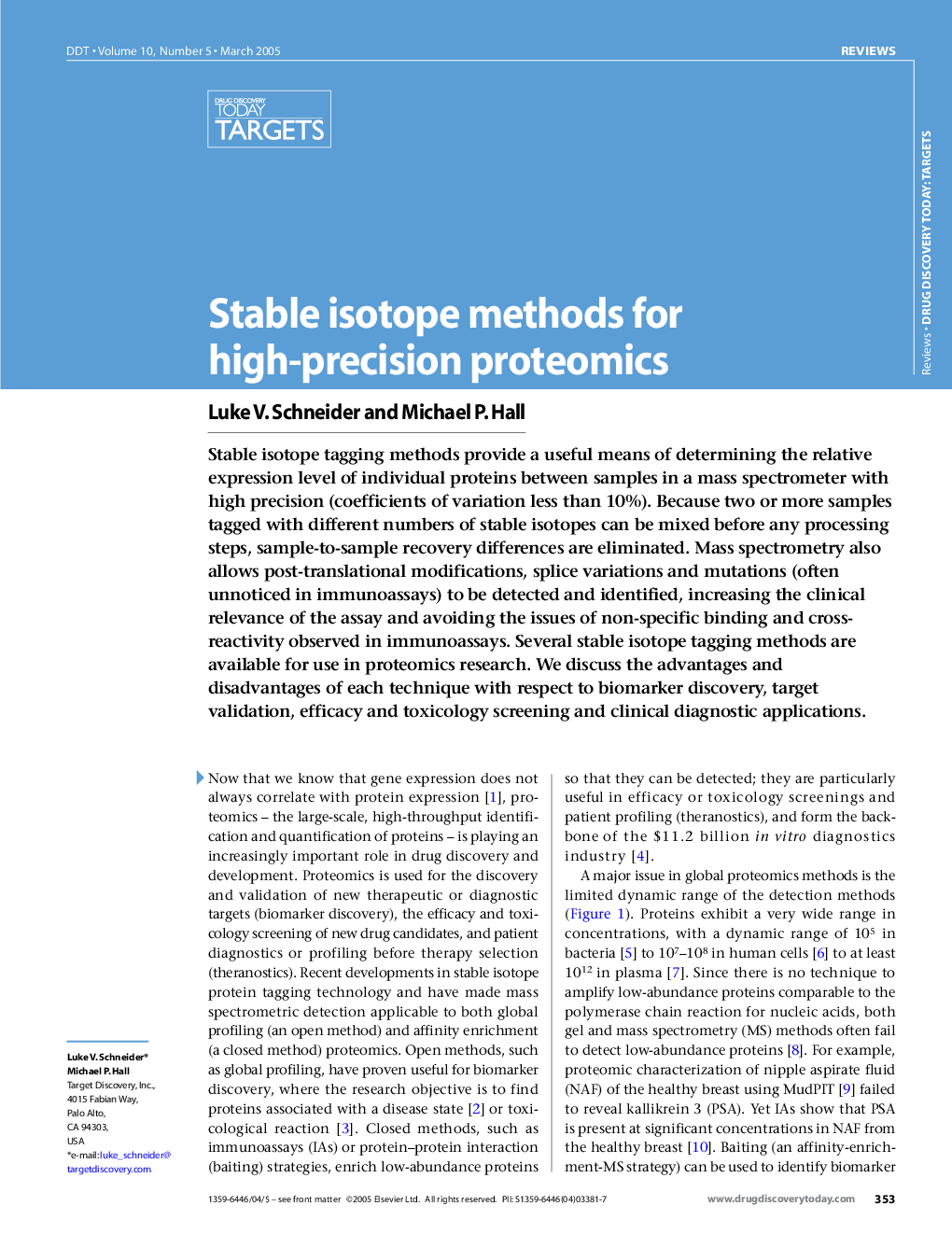| Article ID | Journal | Published Year | Pages | File Type |
|---|---|---|---|---|
| 10886364 | Drug Discovery Today | 2005 | 11 Pages |
Abstract
Stable isotope tagging methods provide a useful means of determining the relative expression level of individual proteins between samples in a mass spectrometer with high precision (coefficients of variation less than 10%). Because two or more samples tagged with different numbers of stable isotopes can be mixed before any processing steps, sample-to-sample recovery differences are eliminated. Mass spectrometry also allows post-translational modifications, splice variations and mutations (often unnoticed in immunoassays) to be detected and identified, increasing the clinical relevance of the assay and avoiding the issues of non-specific binding and cross-reactivity observed in immunoassays. Several stable isotope tagging methods are available for use in proteomics research. We discuss the advantages and disadvantages of each technique with respect to biomarker discovery, target validation, efficacy and toxicology screening and clinical diagnostic applications.
Keywords
Related Topics
Life Sciences
Biochemistry, Genetics and Molecular Biology
Biotechnology
Authors
Luke V. Schneider, Michael P. Hall,
